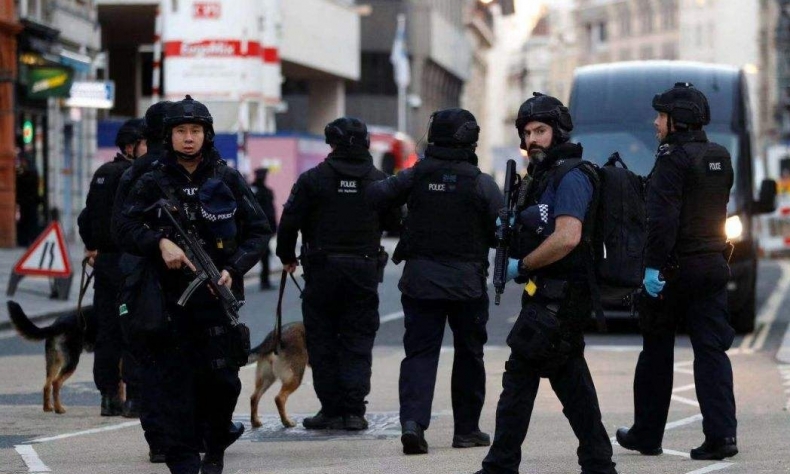
Terrorists still able to get under the wire and cause harm
Last week’s terrorist attack in London has shown that even minor acts of terrorism are atrocious and agonizing. The victims of such despicable acts are innocent people. These incidents should not be just condemned but elaborate measures be taken to counter them.
Last week’s terrorist attack in London has shown that even minor acts of terrorism are atrocious and agonizing. The victims of such despicable acts are innocent people. These incidents should not be just condemned but elaborate measures be taken to counter them.
It is a pity that despite enhanced security systems, militants can evade them to carry out villainy. Apparently, as authorities are becoming more agile to track down the use of explosives and other lethal materials by terrorists, the attackers are also changing their tactics.
Instead of using traditional weapons, militants are employing easier methods to implement their designs. Assaults using kitchen knives and ploughing into unsuspecting pedestrians are among the favorite techniques.
The attacker in the London Bridge incident used a knife. He also wore a fake vest to give the impression it was a suicide jacket. Such a ploy serves well as the common people don’t try to interfere, while police prefer to shoot him instead of arresting alive.
The London Bridge attacker started the attack inside a conference hall where a session on rehabilitation of prisoners was taking place.
That raises a question as to how can we prevent such acts of mayhem so that people do not have to face injury or even death?
To nip the evil in the bud should always be a preferred policy. It requires a robust system of intelligence and surveillance so that those inclining towards extremism and cruel ideas should be identified in time and dealt with before it is too late.
Several terrorist acts are prevented world over every year due to effective intelligence and tracking of individuals and communities that are more prone to commit such acts. As a result, many lives have perhaps been saved.
But even the most formidable system would not be able to screen all such cases. Some future terrorists will always be able to dodge the system and only be spotted when while committing an act of terror.
For such cases, an effective response system is needed. Police should be mobilized quickly to deal with any emergency. They should be trained to nab a terrorist alive. It enables to glean key information about the terrorist’s mission including training, handlers’ details and network information.
Good security prevents acts of terror, but security lapses work in reverse. It is said that bad security is always behind a successful terrorist attack. All those responsible for failures should be probed and held accountable.
For example, why was the London Bridge attacker released from prison on license when he had already been convicted and posed an obvious danger?
He reportedly also agreed to wear a device to monitor his mobility. But all this failed. Ideally, he should have been tailed to the crowded conference, but was apparently left unattended and got time to kill two innocent people and injure three others before being confronted by police.
For complete elimination of terrorism, its causes should be eliminated. I know that all causes cannot be rooted out immediately, especially those linked with the international conflicts. But some of local nature can be effectively addressed.
Response systems to deal with the attacks should be speeded up. Police and other law enforcing agencies should always be ahead of criminals. Reactive-response approach cannot effectively work against those who are adopting new techniques to commit minor level incidents of violence like that of London Bridge.
Sajjad Malik is a columnist with China.org.cn.
Opinion articles reflect the views of their authors, not necessarily those of China Focus
 Facebook
Facebook
 Twitter
Twitter
 Linkedin
Linkedin
 Google +
Google +










